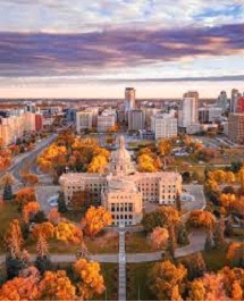Added a post
- Prime Minister Mark Carney unveiled a second group of major projects being considered for fast-track federal approval, and Alberta’s premier signalled support despite her own priorities not making the list. The new slate includes mines, a hydro project, a transmission line, and an LNG proposal, but does not include the bitumen pipeline Alberta continues to push. Premier Danielle Smith said negotiations with Ottawa over the pipeline and the removal or overhaul of federal laws she believes hinder investment are still underway. She indicated the talks are reaching a critical point, while the Prime Minister said more time is needed to finalize details. He stressed that Alberta must commit to investments that prepare its energy sector for a lower-carbon future. British Columbia’s Premier criticized Alberta’s pipeline idea, saying no real project exists and warning of massive taxpayer costs.
- Alberta is moving to formalize early-years math and reading assessments by writing them directly into the Education Act through Bill 6. The proposal would require school boards and early childhood service operators to screen all kindergarten to Grade 3 students and report results to both parents and the province. The Education Minister says legislating the assessments will ensure consistency, help identify learning needs earlier, and keep future governments focused on literacy and numeracy. Critics, including the NDP and the teachers’ union, argue the change is unnecessary, time-consuming for already stretched classrooms, and not matched with adequate funding. The Province has allocated $11 million to support implementation, though opponents say it falls far short of what schools need. If passed, the requirements would take effect in fall 2026 and apply across all publicly funded and accredited independent schools. Regulations determining how often screenings occur and possible exemptions will be developed later.
- More than 1,200 local officials gathered in Calgary for the 2025 Alberta Municipalities Convention, where one key debate focused on who should collect the provincial education property tax. A resolution from Rocky Mountain House called for the province to take over tax collection, arguing that rising education requisitions confuse residents and unfairly place blame on municipalities. Supporters said local governments shoulder the administrative burden and the public frustration despite the Province driving the increases. Calgary’s Mayor backed the push for reform, saying residents deserve transparency about where their money is going. The Province noted that municipalities have long collected these taxes but confirmed it is exploring whether a new provincial tax agency could assume the role. This is the fourth time since 2011 that municipalities have debated similar reforms.
- Alberta has already allocated all 1,200 megawatts of its temporary large-load power capacity to two major data centre projects near Edmonton, leaving 37 other proposals without access to the provincial grid. The remaining projects must now either build their own on-site power generation or wait years for new grid infrastructure, as experts warn that transmission upgrades alone can take a decade. This bottleneck poses a challenge to the province’s goal of attracting $100 billion in AI data-centre investment, with electricity demand from proposed facilities far exceeding available supply. Premier Danielle Smith has directed the Utilities Minister to fast-track projects that bring their own power, reflecting the government’s push to ease pressure on the grid. AESO data shows developers have requested nearly 20 gigawatts of load but proposed less than five gigawatts of new generation, prompting the cap and the launch of a second phase of the integration program. Phase 2 will focus on long-term solutions and clearer pathways for “bring your own generation” models, with industry consultations beginning later this month. The Province says it supports AESO’s cautious approach, emphasizing reliability and affordability for Albertans while still pursuing leadership in North America’s data-centre sector.
- The Alberta NDP has started a full-scale relaunch of party leader Naheed Nenshi nearly a year and a half into his leadership, releasing a polished new ad focused on his personal story and Albertans’ struggles with affordability, health care and education. The reintroduction comes with heavyweight outside help: the party hired the US-based Fight Agency, known for high-profile progressive wins in places like New York and Pennsylvania, to craft the ad. Party officials say the agency specializes in speaking to working-class voters in right-leaning regions, a weakness critics identified in the NDP’s 2023 campaign. At the same time, Nenshi has stacked his senior team with former federal Liberal strategists rather than traditional New Democrats, drawing from the orbit of Mark Carney and Justin Trudeau. The ad avoids specifics on policy and downplays Nenshi’s academic pedigree, aiming instead to present him as a champion of “ordinary Albertans.”


